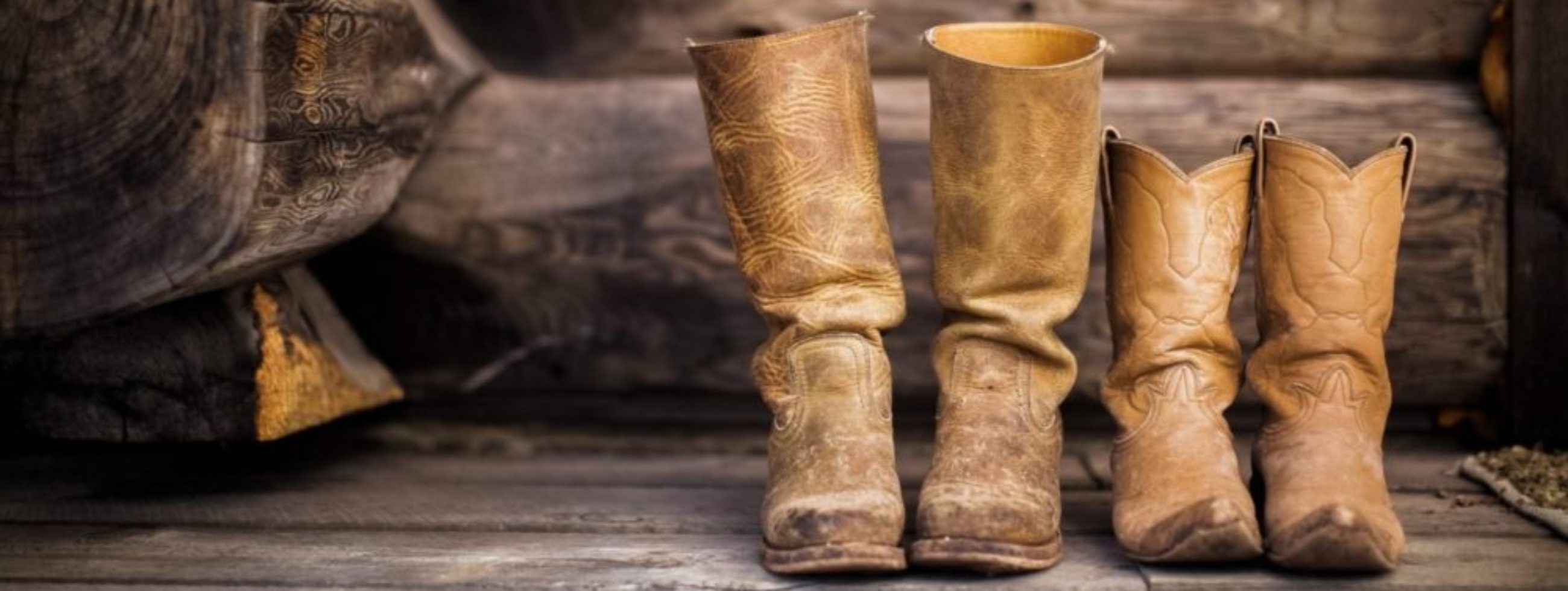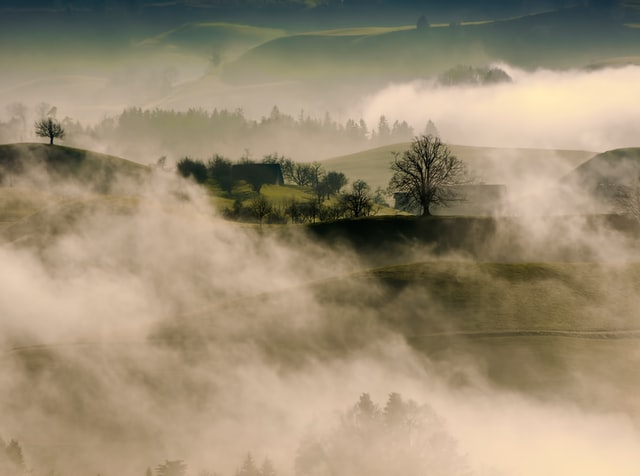A DOZEN OR MORE three-hundred-year-old black oaks spread over the top of the south side hill of our farm with a two-acre pasture on top and our house sat on the edge and overlooked a small twenty-acre valley bottom with Reese Creek and across it at the far side and then there was a similar hill of Ponderosa pine and Douglas fir to complete the farms north edge as a cross section of a small valley running from our house south to north.
One afternoon after school when I was 15, I walked out through the oaks to find my Grandfather, a man in his mid-eighties, sitting on a bucket turned upside down, underneath an oak and about a hundred yards from the barn. It was his son’s farm, my Uncle, who owned a business in town and twenty miles away. My grandfather had used his own money, to build a lambing shed, then chicken coops, then a substantial barn, and then again, a half-acre garden down by Reese Creek, that was irrigated by a pump and sprinkler. With sheep and chickens and a couple steers, and the garden we had a complete working subsistence farm. Before he came it was just living in the country. He came there at 79 years old and had it began producing in one year. The tractor was the most important tool. My Uncle kept the tractor in top mechanical shape as he was a mechanic. My grandfather and the Ford 9N tractor had turned the place into a producing farm selling wool, hay, lambs, eggs chickens, and vegetables. I was a part of all of this.
Every day in his sweat stained straw cowboy hat he was on his son’s Ford tractor to the garden, the sheep shed, the garden by the creek, and when I went looking for him my radar was always set for the Ford tractor.
The tractor was like the 20 mule teams he used to own when he was a successful farmer on the Great Plains. He had started as a cowboy breaking horses for a living. He was at the door of change from horse drawn everything to tractors, and power from oil that began to feed the world, shortly before, banks and the great depression ended all that for him.
For our little subsistence farm, the tractor plowed, the tractor fertilized, the tractor planted, the tractor cut hay, the tractor raked hay, and the tractor bailed hay, the tractor hauled hay, the tractor mixed cement, the tractor toted injured animals.
I found him sitting on a five gallon bucket his hat on his knee and embarrassment on his face. A look I’d never seen before from the most affable man I’d ever known.
“Oh Jimmy,” he sighed, “You have to do something for me.”
He allowed that he had left the tractor out of gear and did not set the brake while he got off to do some chore, and the 9N had inadvertently rolled down the hill—and it was not a gentle hill, but instead it was about a 70 percent slope. With an almost straight drop the tractor got going at such a high rate of speed that when it hit the bottom it actually bounced over a fence just like a bounding deer at the bottom of the hill; and while airborne, it hit the pasture and bounded over another small hill by the apple trees, and rolled out into the fresh green pasture upright with all four wheels on the ground; beside the still slough where bull frogs were letting go in their slow and late afternoon jug-a-rums as they form spring to fall.
By his narrative, I was now looking down wide eyed over the hill and out to where, yes in the green pasture—there the tractor was sitting motionless in the sun.
“I’d like you to go down there,” he said, pointing at the tractor but looking away, “and if there is nothing wrong with it, drive that tractor back up here, and never, never-tell-my-son-that-this-ever-happened.”
I went over the top of this steep hill side, amazed and laughing and imagining again the trajectory and the perfect angle of descent that kept the 9N from turning over, and fully expected something vital to the machine being broken as his narrative told of a very loud noise when it hit the bottom of the hill, before it leapt the fence.
Hell yes, I was wishing I’d seen it happen, but when I got to it, I could not see anything broken. I touched the button starter next to the gear shift that was still in neutral of course, it fired up like it was new, and I drove it back up the 100-year-old road bed that was at one time the road from Medford to Prospect, that now let us take a long gentle slope slowly up and down to our house and farm. He was of course relieved, and I never told my uncle of the driverless Ford Tractor’s wild ride until about 10 years after the old man had died.
Another afternoon when I was 17, I found him on the concrete floor of the barn having fallen and broken his hip while tending an animal, I gently got him in the carry-all I attached to the back of the tractor and very slowly got him to the house, before dark where I called our Doctor at the time who drove a fast 16 miles out to examine him. He thought his hip was broken, and then we waited for an ambulance to come twenty miles from town. They operated on him the next day and pinned his hip and told him he’d likely never walk again.
Before he left the hospital, he told me that this was bullshit and he’d be walking on a plane to fly back to Kansas. He was determined not to die in Oregon as he thought his son might bury him here and not beside his wife in Kansas. The notion of family and death and after life being was lost on his son. So being buried in a place, an actual piece of earth with a direct address that he last saw at his wife’s funeral was all in the old man’s heart and he was unbending against a wind of utility and my Uncle’s notion of frugalness. The Kansas prairie was a part of all his stories and memories, which was part of everyday banter, and the Oregon farm for almost ten years had been like an extended vacation, he wanted to rest in the midst of a landscape in the Flint Hills not far from the location of the sod house he was born in. His farm on Grouse Creek that was taken away in the depression, his father’s farm that his sister lived on until her eighties, the two small towns he’d done commerce in, the wagon roads that were now paved, as boy seeing it unfettered with no fences, seeing Indians, and living among his Norwegian relatives, and taking to the cowboy life as a young man and the memory of horse drawn everything giving way to automobiles, the laughter the children, his wife, his Beechnut tobacco chew, the good dogs in his life, the tragedy of all the deaths before him; his father and mother and father-in-law and several still born children and a one year old child, all in the same cemetery—all would come to an end and he’d be there and he was very comfortable with this notion. He mended, in a hospital bed in our living room for a time, started out on a walker, then crutches and to two canes and then to one.
That next fall I and a neighbor killed three nice blacktail bucks across the creek beyond the garden where I knew they could be waylaid, and I drove them back draped over the tractor up the old Prospect road past our house where my grandfather was standing on the back patio watching us return and he raised one of his canes and brandished it in the air approvingly, as we drove past.
The next spring, I accompanied him to the airport and saw him walk with one cane up onto a Boeing 727, and as he got to the door, he turned around and waved his Stetson hat down at me on the tarmac, and then he slowly turned around in his cowboy boots and entered the jet to be caught up in the air, and I never saw him again.
James Ross Kelly lives in Northern California next to the Sacramento River. He has been a journalist for Gannet, a travel book editor, and had a score of labor jobs—the in-between, jobs you get from being an English major. He started writing poetry and short stories in college on the GI Bill, after college he continued and gave occasional readings in the Pacific Northwest during the 1980s. Mr. Kelly worked as an environmental writer for the Forest Service in Oregon and Southeast Alaska where he retired in 2012. Born in Kansas, Mr. Kelly was a long-time resident of Southern Oregon where he grew up. In the past four years Silver Birch Press (Los Angeles, California), Cargo Literary, (Prince Edward Island, Canada), Fiction Attic, Rock and Sling (Spokane, Washington), Edify (Helena, Alabama), Flash Fiction (San Francisco), Rue Scribe (New Mexico), True Chili (New Mexico), The RawArt Review (Endicott City, Maryland) and The Purpled Nail (New Mexico), have all featured one or more of his stories or poems. Most recently, And the Fire We Talked About, a collection of short stories, will be published by Uncollected Press/RawArt Review in 2020 and is Mr. Kelly’s first book of fiction.

